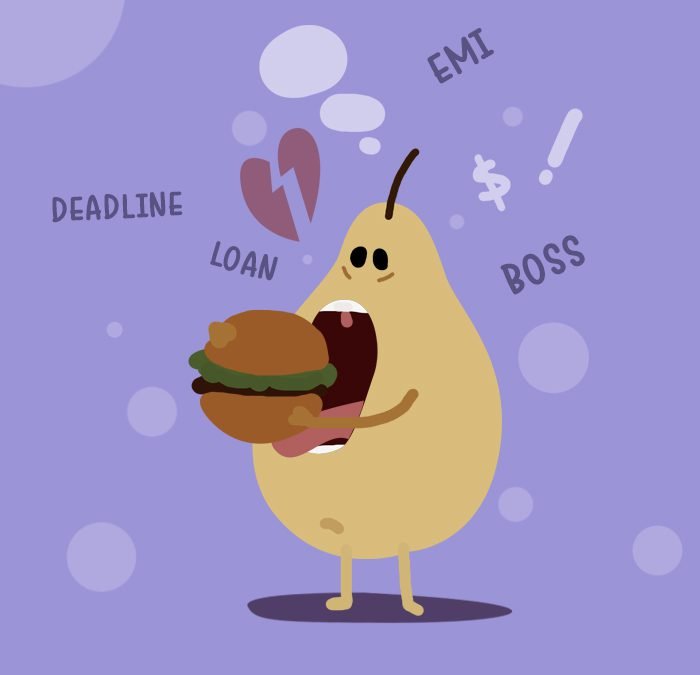Do you seek comfort in food? Do you find yourself reaching out for food, which you associate with comfort, when you are upset, feeling down or experiencing strong emotions?
You are not alone in the practice which is defined as emotional eating. We tend to seek solace or joy in food to suppress negative emotions several times a week. This in turn makes us feel guilt or shame, leading to a cycle of excess eating and weight gain. Here is our comprehensive guide by NuGenomics’ fitness and weight loss experts to manage your emotional eating disorder.
The Causes of Emotional Eating
Work stress, financial instability, health issues, boredom or relationship struggles may be some of the common causes of emotional eating for most of us. It affects both sexes but different studies claim that emotional eating is more common with women than with men.
Negative feelings make us feel empty or create a void. While food is known to fill us up. Every time we are hit with a strong negative void, we try to fill it with food and get temporary wholeness.
Also, at the times when we are feeling emotionally insecure, we tend to move away from society and social support. We feel too lethargic to participate in activities that may help us to relieve that stress. We are unable to differentiate between physical and emotional hunger and our changing cortisone levels in response to stress also trigger food cravings.
Effects of Emotional Eating
The most evident and probably the most damaging effect is falling prey to a weight gain cycle or if we are already trying to lose weight then our efforts are sabotaged with emotional eating. Stress eating often leads to too much consumption of high calorie, sweet and salty foods.
Whatever emotion makes us crave food, but it leads to the same result. The relief is temporary, the overwhelming emotion we were escaping from returns after a while. This triggers the guilt and shame and puts us on a vicious cycle – emotional eating, feeling bad and then eating again to escape that guilt.
How to Stop Emotional Eating?
1. Your Genetics Could be Responsible for Emotional Eating:
The first step to stop emotional eating is to understand the reasons behind stress eating. An important point to take into consideration is predisposition towards emotional eating disorder. If one of our family members has suffered from emotional hunger then we may be prone to reacting to emotional eating in situations of stress. Once the acknowledgement and the understanding of the problem is there then further changes can be made to address the disorder. If you are not sure about the family history then you should go for a DNA based fitness and health checkup to analyse your complete body and gut problems.
2. Spend Time with Family & Do Activities:
It is imperative to develop a healthy response to triggers of emotional hunger and find other ways to overcome it. Talking to friends, family members, professional or medical help about the emotions and situations that trigger the eating. Participating in physical activity, usual stress reliever like meditation, dancing, yoga etc can be a great choice too.
3. Keep Track on What You Eat:
Keeping a food diary where we record what we eat, how much we eat, when we eat, how we are feeling when we eat and how hungry we are – helps in emotional eating therapy. Identifying if the hunger is physical or emotional also allows us time to let the craving pass.
Instead of high calorie food, look for healthier options to snack on when the craving hits. Do not ignore cravings completely as it is short-term and we would end up binging far more than usual when the craving over powers. So look for best solutions, awareness and seek help in the form of society, counselors etc.
When in spite of our self-help efforts, we are unable to control emotional eating, then seeking specialized help in the form of a DNA led holistic wellness program is the right path. One-time genetic testing will let us know what key pre-dispositions we have. Being aware is half battle done and then accordingly we can work on emotional eating weight management and lifestyle changes armed with the knowledge of our body’s limitations and capabilities.
Healthy weight loss and management with NuGenomics is the scientific way to lead a holistic life and enjoy the choices one makes. For regular update on for weight loss and fitness you can follow us on Instagram.
 Cart is empty
Cart is empty 